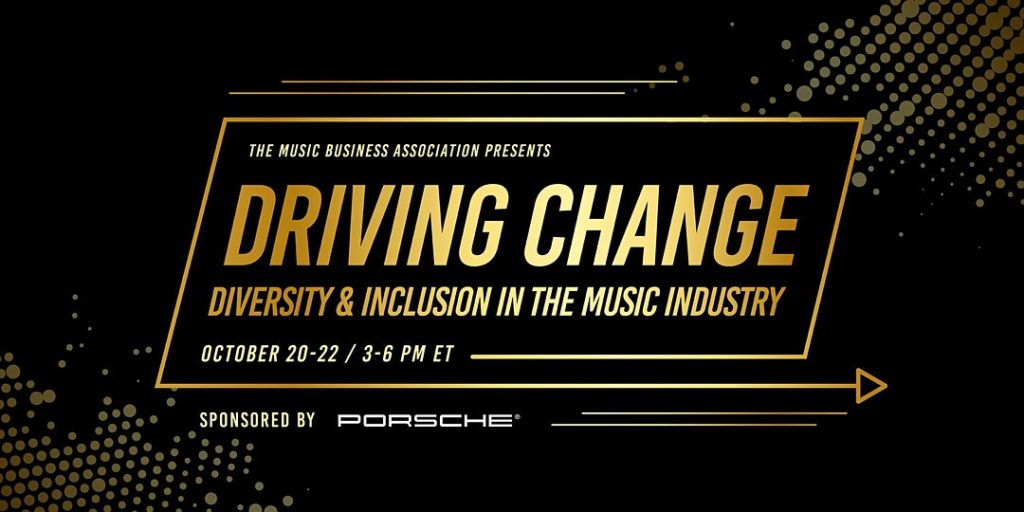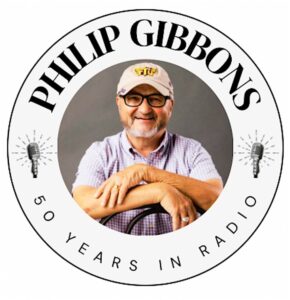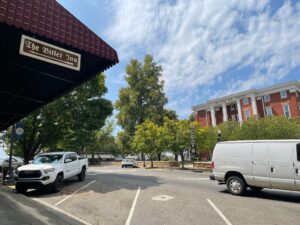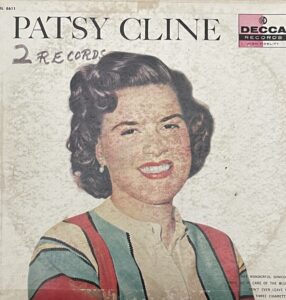Talking Black, Nashville, and Country Music
James Akenson
I’m greatly concerned with the issues related to social justice that boiled over with the death of Breonna Taylor and Georgie Floyd. Yet, as I begin this Country Underground Australia piece I’m also thinking about The Killer, Jerry Lee Lewis, and Johnny Cash. Both performed stellar versions of Life’s Railway to Heaven.
How could Jerry Lee Lewis’ and Johnny Çash’s great performances of Life’s Railway to Heaven possibly relate to social justice issues fueled by the Black Lives Matter movement? Well, wait and see. It will be obvious at the end.
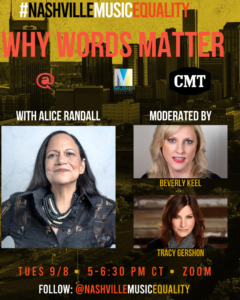 Nashville Music Equality Why Words Matter
Nashville Music Equality Why Words Matter
The issue of racial justice in the United States took center stage during the summer and fall of 2020. It even took on a bigger slice of the stage in Country Music as well. Even with the major impact COVID-19 on Nashville tourism and Country Music concerts grinding to virtual halt, racial issues in Country Music took on a bigger focus than ever before.
Race over took concerns in social media about gender and Country Music. The long simmering concern of women not having equal airplay on Country Music radio waned somewhat in its intensity.
What could be discussed in Nashville about the African American influence on Country Music that wasn’t already known? Not just scholars, but lots of others know of the long-time interconnection between Country Music and African Americans. Accounts of Jimmie Rodgers learning from African American railroad workers…gandy dancers is widely known.
Blue Yodel Number 1…commonly known as T For Texas… followed a Blues style. Louis Armstrong and wife Lillian Hardin backed Jimmie Rodgers on Blue Yodel Number 9. Hank Williams learned important guitar and performance technique from an African American named Tee Tot. The list goes on and on to even the much-disliked Bro Country that features a strong hip-hop influence.
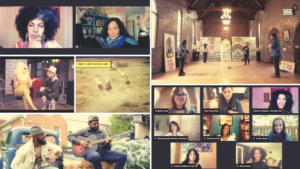 CSSBS Pics
CSSBS Pics
The discussion on race in Nashville and Country Music now focused on the business of Country Music itself. Just what is it like to be African American in Nashville? What is it like to be in the Country Music business in Nashville?
What are all the small and large incidents that happen frequently in Country Music if you’re African American? What should be done to make Country Music more inclusive?
I attended several Nashville based webinars sponsored by #Nashville Music Equality dealing with race and Country Music. The discussions drove home points about race in the United States about which I already knew and provided me even more depth of insight.
First of all, if you didn’t know, it’s not easy being African American in the United States. And that’s over sixty years after the 1954 Brown vs Board of Education U.S. Supreme Court decision struck down separate but equal schools. And that’s over fifty years after the Civil Rights act. The list goes on.
The webinars I attended…thank you ZOOM….brought out the daily indignities from the Country Music panelists. The webinars informed audiences of many aspects of African American experiences. Take a look at the graphics of the varied ZOOM meetings!
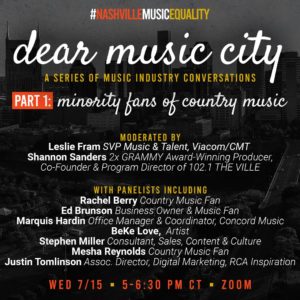 Comments from African American Nashville music industry panelists reflected all the indignities I’ve heard before and are generally known….but maybe not believed by some folks. What’s particularly sad is that these feelings and experiences come from highly skilled, knowledgeable, and effective professionals. They include how….
Comments from African American Nashville music industry panelists reflected all the indignities I’ve heard before and are generally known….but maybe not believed by some folks. What’s particularly sad is that these feelings and experiences come from highly skilled, knowledgeable, and effective professionals. They include how….
- African American males are seen as a dangerous.
- There are different rules for Black men in America.
- African Americans know to avoid stopping for gas in certain cities on the interstate. Pick- up trucks flying the Confederate Battle flag will follow you.
- The Confederate battle flag makes many African Americans sweat.
- They worry for their safety all the time.
- People think that you look like you’re up to something.
- African Americans wonder what must they do to be seen as worthy by other music executives.
- Music executives make comments that Nashville is not where an African American should be.
- The ‘N’ word will still be used in their presence.
- Security guards follow African American professionals around backstage or stop them despite having a backstage access pass.
- The ability to switch-on standard English speech is important.
- African American influenced music might be referred to as jungle music and watermelons would be mentioned.
- Musicians might ask African Americans with excellent professional credentials in positions of authority questions designed to determine if they know what they are doing and put them on-the-spot.
- Being mistaken as a food service worker.
- Confirm the address when you’re going to a neighborhood and “meet me at the door.”
- Spending more time in motel rooms when out on the road in order to feel completely safe.
Another event, the Country Soul Song Book Summit (CSSBS) covered a lot territory about race and gender. CSSBS featured thirty-five hours of steaming video over four days and sixty-five BIPOC and LGBTQIA artists. If you didn’t know of BIPOC you did after the Summit.
It stands for Black Indigenous People of Color. You can take a look and listen. A panel featuring Country Music scholar Charles Hughes and Liliie Lewis of Louisiana Red Hot Records dealt with Making Music and Making Race in the American South. Hughes and Lewis also presented a panel Imaginary Chasm: The history of ‘Genre Defined By Race’ in the Music Industry.
You get the idea. The Summit stressed issues of race and gender. Their vision for the future ain’t your John Williamson vision for Country Music. It’s not just for white folks anymore in this vision of Country Music’s future.
The capstone of the music discussion seminars on diversity and inclusion took place in late October. It had a powerful engine…a classy, world-class engine you might say….sponsored by Porshe. Can’t get too much classier than Porshe. I can’t afford even a used Porshe! The Music Business Association titled this three-day webinar Driving Change: Diversity and Inclusion in the Music Industry.
The Nashville participants included the leaders of Nashville Music Equality. In broadly inclusive panels or panels focused on Country Music the Nashville participants repeated…played it again Sam… making valid points about stereotypes and barriers to inclusion. The title of the Nashville based panel The Elephant on the Row refers to Music Row….the epicenter of the Country Music industry.
The Elephant on the Row — hosted by Nashville Music Equality
Join Nashville Music Equality for a hard and honest conversation about race from the perspective of executives, fans, and performers in the Country and Nashville music industry.
Moderator
- Shannon Sanders, 2x GRAMMY Award-winning producer and Board President, Nashville Music Equality
Panelists
- Ed Brunson, Country Music Fan and Owner, Brunson Food Group
- Gina Miller, SVP & GM, Entertainment One; Co-Founder, Nashville Music Equality
- Wendy Moten, Multi-Talented Vocalist/Songwriter
- Rissi Palmer, Singer/Songwriter
- Candice Watkins, VP of Marketing, Big Loud Records
The Elephant on the Row repeated the ideas presented in the Nashville based discussions. A wider national audience heard the problems. That in and of itself helped keep the whole discussion of race in the United States and the Country Music industry on the front burner.
Another Nashville focused panel, Is The Conversation Changing dealt more with the issue of women in Country Music and country radio in particular. It covered the basic issue of the lack of women in Country Music radio as mentioned in an earlier Country Underground Australia piece. Problems like unequal radio airplay for women don’t go away quickly no matter how clearly the advocates point it out. Frustrating you say? Frustrating yes. But like The Elephant on the Row keeping the attention on key issues in front of a national audience might pay dividends. Take a look and listen at Is The Conversation Changing.
There were other Driving Change panel discussions as well as performances by a wide variety of up-and-coming artists of all genres. Very impressive. Driving For Change discussions showed that Country Music wasn’t the only culprit when it comes to race and gender problems.
Will it all pay off? Will all these discussion actual Drive Change? Will all these seminars result in a significant, sustained wave of diversity and inclusion in the Nashville Country Music industry…and even throughout the music industry? On the positive side, the tsunami of discussions about race and gender spawned by the deaths of George Floyd and Breonna Taylor….with perhaps some help from COVID-19…seems to be more than lip service.
These local and national discussions clearly showed four things for me.
First, there still is a long way to go for inclusion and diversity to be standard in the Country Music industry….and even the music business in general.
Second…it will take commitment beginning at the top…and going down to the middle and even the bottom.
Third, it will take specific long-term strategies to drive diversity and inclusion forward. Walking into a room of all white male executives won’t and shouldn’t cut-it anymore.
Fourth, Country Charley Pride’s great song still holds true. The Easy Part’s Over Now states The easy part’s over now and the hard part’s begun. It is indeed difficult to work at inclusion and diversity for the long haul. It’s not a sprint. It’s a marathon. The metaphoric 26.2 miles will be a grind. A 13.1 mile half-marathon is impressive, but not acceptable.
But…will it happen like panelists who defined The Elephant on the Row …and other panels…wish it will happen in Nashville? Time will tell. The conversations have been intense. That, of course, won’t get the job done. Bureaucracies have a way of absorbing and deflecting blows. Kind of like boxer Mohammed Ali and his immensely effective Rope a Dope defense. Ali learned to wear down opponents leaning against the ropes, blocking blows, allowing the ropes elasticity help absorb the blows, and biding his time to throw winning blows.
I loved the discussions. I’m not certain I heard as many specific, detailed concrete strategies that have been proven to work, can be learned by advocates, can be successfully taught to skeptics, and consistently maintained. I want the Gender and Equity Train to roll into the station. Like our classic Life’s Railway to Heaven everyone will have to keep their hand upon the throttle and their eye upon the rail. Let’s hope they never falter, never fail, till they reach that blissful shore of racial and gender equality in our beloved Country Music.

